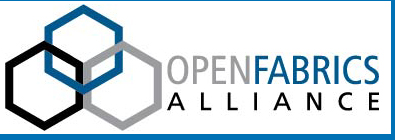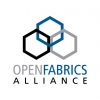Week-Long Workshop Features Community-Wide Discussion on RDMA Technology and Future of OFA
The 13th Annual OpenFabrics Alliance (OFA) Workshop wrapped at the end of March with a look toward the future. The annual gathering, held this year in Austin, Texas, is devoted to advancing cutting edge networking technology through the ongoing collaborative efforts of OpenFabrics Software (OFS) producers and users. With a record 130+ attendees, the 2017 Workshop expanded on the OFA’s commitment to being an open organization by hosting an engaging Town Hall discussion and an At Large Board election, filling two newly added director seats for current members.
An Interactive, Community-Driven Program
The OFA Workshop 2017 kicked off on March 27 with a keynote address, titled “Exascale Computing Project – Driving a HUGE Change in a Changing World,” provided by Al Geist of Oak Ridge National Laboratory (ORNL). Mr. Geist is a Corporate Research Fellow at ORNL, serves as the chief technical officer (CTO) of the Exascale Computing Project (ECP), CTO of the Leadership Computing Facility, and is chief scientist for the Computer Science and Mathematics Division.
In his keynote, Mr. Geist discussed the need for future Department of Energy supercomputers to solve emerging data science and machine learning problems in addition to running traditional modeling and simulation applications. In August 2016, the ECP was approved to support a huge lift in the trajectory of U.S. High Performance Computing (HPC). The project’s goals are to deliver capable exascale computers in 2022 and one early exascale system in 2021, which will foster a rich exascale ecosystem and work toward ensuring continued U.S. leadership in HPC. He also shared the ECP plans for achieving these objectives as well as potential positive impacts for the OFA.
The remainder of the week was filled with an interactive, community-driven program that featured over 50 sessions in 12 topic areas; including subjects on current deployments of RDMA in today’s systems, developments in network APIs, and new and advanced network technologies. Representatives from more than 20 companies and organizations from around the world delivered sessions delving into Persistent Memory, Accelerators and GPUs, and Data Intensive Computing and Analytics, as well as a new section devoted to developments in moving RDMA technology into the kernel.
Several New Workshop Elements Debut in 2017
Providing attendees with a forum to voice their opinions on the overall direction of the organization, however causal or spontaneous, is one of the more fruitful aspects of the annual OFA Workshops. To ensure this open and engaged dialogue within the OFS community at future Workshops, the Alliance introduced a Town Hall session. Participants were asked to answer and deliberate on two critical topics: “What should the OFA look like and how should it behave in the years to come?” and “What more can the OFA do to add value within the community of network developers and consumers?” The discussion was led by the OFA Vice Chair, Paul Grun, and leaned heavily on attendees’ experiences with the Alliance and their work with OFS technology.
The OFA also wanted to solicit additional insight from the wider RDMA community as the organization adapts to an ever-evolving networking landscape. With that in mind, the leadership conducted an At Large Board election, filling two newly added director seats for current members. Attendees were asked to nominate individuals that were also in attendance to make up a final ballot of peers that will represent their interests in future executive decisions. After the votes were tallied, Jason Gunthorpe, of Obsidian Research Corporation, and Bob Noseworthy, of the University of New Hampshire InterOperability Laboratory, emerged as the community’s choices. View a recent OFA blog for more details (https://www.openfabrics.org/index.php/blogs/125-new-ofa-at-large-directors-signify-expanding-engagement-with-broader-open-source-community.html).
OFA member company Intel Corporation contributed their support to the Workshop as this year’s Platinum Sponsor. Additionally, we are excited that Los Alamos National Laboratory (LANL), an extensive user of OFS, stepped in to support the event with an aim toward advancing open networking communities.
Workshop Content Now Available
In keeping with its charter as an open source organization, the OFA freely publishes the resulting materials of each annual Workshop. For the complete collection of this year’s Workshop presentations slides and videos, visit: https://www.openfabrics.org/index.php/2017-ofa-workshop-presentations.html

